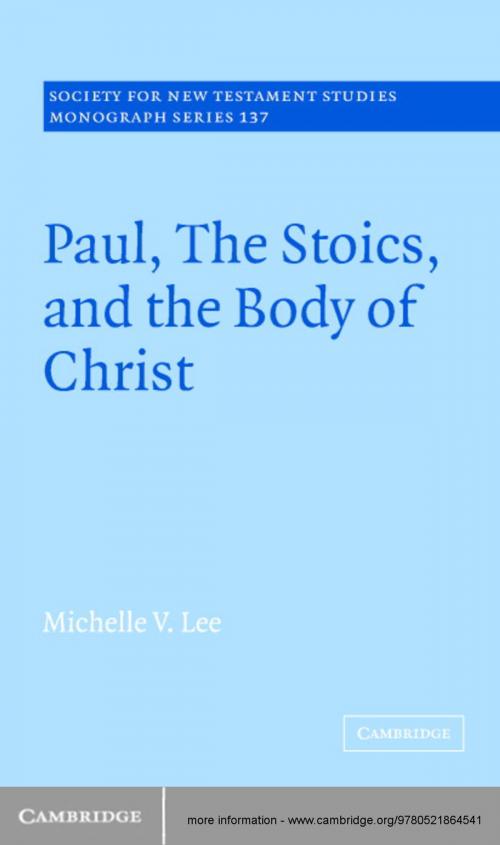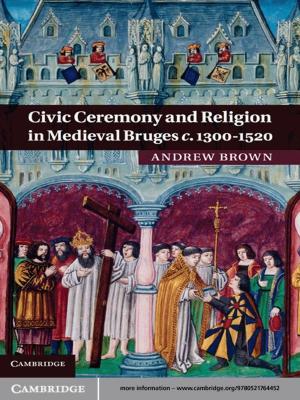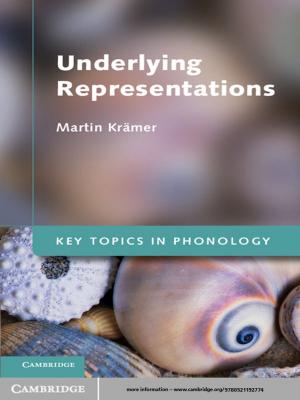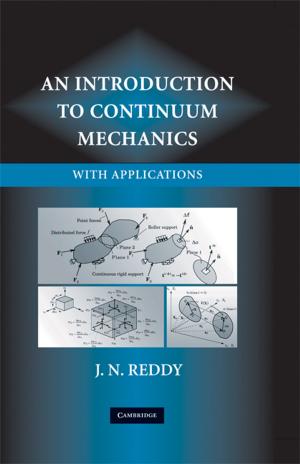Paul, the Stoics, and the Body of Christ
Nonfiction, Religion & Spirituality, Bible & Bible Studies, New Testament, Study| Author: | Michelle V. Lee | ISBN: | 9781139810609 |
| Publisher: | Cambridge University Press | Publication: | July 20, 2006 |
| Imprint: | Cambridge University Press | Language: | English |
| Author: | Michelle V. Lee |
| ISBN: | 9781139810609 |
| Publisher: | Cambridge University Press |
| Publication: | July 20, 2006 |
| Imprint: | Cambridge University Press |
| Language: | English |
At first glance, Paul's words to the Corinthians about being the body of Christ seem simple and straightforward. He compares them with a human body so that they may be encouraged to work together, each member contributing to the good of the whole according to his or her special gift. However, the passage raises several critical questions which point to its deeper implications. Does Paul mean that the community is 'like' a body or is he saying that they are in some sense a real body? What is the significance of being specifically the body of Christ? Is the primary purpose of the passage to instruct on the correct use of spiritual gifts or is Paul making a statement about the identity of the Christian community? Michelle Lee examines Paul's instructions in 1 Corinthians 12-14 against the backdrop of Hellenistic moral philosophy, and especially Stoicism.
At first glance, Paul's words to the Corinthians about being the body of Christ seem simple and straightforward. He compares them with a human body so that they may be encouraged to work together, each member contributing to the good of the whole according to his or her special gift. However, the passage raises several critical questions which point to its deeper implications. Does Paul mean that the community is 'like' a body or is he saying that they are in some sense a real body? What is the significance of being specifically the body of Christ? Is the primary purpose of the passage to instruct on the correct use of spiritual gifts or is Paul making a statement about the identity of the Christian community? Michelle Lee examines Paul's instructions in 1 Corinthians 12-14 against the backdrop of Hellenistic moral philosophy, and especially Stoicism.















